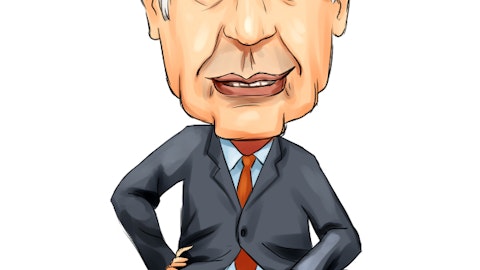What the world’s largest hedge fund is buying (USAToday)
Bridgewater Associates is the largest hedge fund in the world when it comes to assets under management. Founded by Ray Dalio in 1975, the fund’s status as world’s largest tells us two things: First, it has done enough to win the confidence of money managers. Second, any trades made by this behemoth are likely to move a given stock’s price. Over the course of the third quarter of this year, the fund sold or reduced positions in 234 stocks while adding only 87 different companies’ shares to their portfolio. Of all those trades, three stood out as worthy of attention.

Australian Dollar Slide Extends on Hedge Fund Selling (WSJ)
The week-long retreat of the Australian dollar, which has reaffirmed its status as one of the worst-performing currencies globally in 2013, returned anew Wednesday as global hedge funds sold the unit heavily in response to recent warnings from the central bank it is still too high. The Aussie slumped to its lowest level since Sept. 4 in New York on Tuesday and then failed to bounce in the Asia session Wednesday, leaving traders to speculate a second wave of selling may be in the offing when European and U.S. investors rejoin the market in coming hours. “Hedge fund and model fund selling was tipped amid heavy losses during the European morning,” said Sean Callow, senior currency strategist at Westpac.
Facebook becomes hedge fund favorite (Chronicle)
Facebook Inc (NASDAQ:FB) has become a hedge fund favorite. The social network broke into the top-10 stocks that appear most frequently among the largest holdings of hedge funds, according to a Goldman Sachs Group, Inc. (NYSE:GS) survey of their third-quarter holdings. Facebook ranked sixth, after not placing in the top-50 stocks in Goldman’s second-quarter survey. Facebook stock closed above its May 2012 initial offering price of $38 in August, which helped attract hedge fund managers.
Agreement paves way for marketing Cayman funds (CompassCayman)
The Cayman Islands Monetary Authority last week signed a memorandum of understanding with the German financial services regulator Bundesanstalt für Finanzdienstleistungsaufsicht, providing for mutual assistance in the supervision of alternative investment fund managers who operate in both jurisdictions. Without the agreement, new hedge funds that are subject to the recently implemented EU Alternative Investment Fund Managers Directive could not have been marketed to German investors. Although German institutional investors are not the main hedge fund investors in Europe, they place approximately half of their hedge fund allocations with funds based in the Cayman Islands, according to data service provider Prequin.
Study finds new hedge fund managers offer potential for greater returns (Opalesque)
The latest Hedge Fund Spotlight from Preqin examines emerging hedge fund managers and finds that hedge funds launched by new managers offer the potential for greater returns. The firm says that first-time funds on average post better returns than funds launched by established firms, but institutional investor interest in emerging managers continues to decline. Preqin’s figures reveal that the average emerging manager long/short fund launched since 2007 delivered annualized net returns of 8.80% in its first three years of trading, compared with an annual rate of 5.38% from newly-launched funds managed by established firms.
Ships and Diana Shipping, but Should You? (DailyFinance)
George Soros‘ investment firm recently purchased 590,278 shares of DryShips Inc. (NASDAQ:DRYS) and 77,942 shares of Diana Shipping Inc. (NYSE:DSX). That comes out to a $1.8 million stake in DryShips and an $841,000 stake in Diana Shipping. Soros’ firm currently manages right around $6.8 billion spread across 2,333 holdings, so these additions are a very small portion of the total portfolio. The firm also owns small positions in Navios Maritime Holdings and Navios Partners. Whether it’s Soros himself or his fund managers, it appears his company is making a small bet on the dry bulk shipping sector, with DryShips and Diana Shipping leading the pack. So just what would motivate Soros to invest in this sector?
$1.8B no sweat for Steve Cohen (CNBC)
Jim Rogers: “the Fed will self-destruct” (VoiceOfRussia)
Jim Rogers, a well known commodity investing guru, believes that the Federal Reserve is doing more harm than good and should be abolished before it’s too late. He also prefers “Chinese open markets” while criticizing the state-controlled economy of the US. Rogers, a former partner of George Soros and a pioneer of commodity investing, is an outspoken critic of the Fed and a big believer in the advent of the “Asian century”. While his views are quite unorthodox, he should at least be respected for following his own advice. The eccentric millionaire moved to Asia several years ago and his children are studying Mandarin at a school in Singapore…
Grand Theft Auto maker buys out Carl Icahn (CNN)
Icahn first took a big stake in Take-Two Interactive Software, Inc. (NASDAQ:TTWO) in late December 2009, buying around 9 million shares for just under $8. The activist investor has boosted and reduced his overall stake throughout the years. As of the end of the third quarter, Icahn was Take-Two’s largest shareholder. His 12 million shares gave him a 12% stake in the company. But on Tuesday, Take-Two announced that it is buying back all of Icahn’s shares for a little over $200 million, or about $16.93 per share. That’s more than double the amount Icahn first paid in 2009.
Ex-SAC analyst takes stand in Steinberg’s insider trading trial (Reuters)
The U.S. government’s main witness in the insider trading case against Michael Steinberg took the stand Tuesday to testify against his former boss at Steven A. Cohen‘s SAC Capital Advisors. Jon Horvath, a former analyst who pleaded guilty to insider trading charges last year and faces up to 45 years in prison, told jurors he is cooperating with the government in hopes that he will not get anything close to the maximum prison term. “I’m hoping to avoid jail time,” Horvath, 44, said. Steinberg is the first employee of SAC to face trial in the long-running investigation of Cohen’s hedge fund that resulted in its $1.2 billion plea deal earlier this month.
Can Six Top Hedge Funds Raise Capital in China? (InstitutionalInvestorsAlpha)
Hedge fund managers in the West have been investing in China for the better part of a decade, but they have not been able to raise money from individual investors there — until now. With the launch of a pilot program that will allow foreign hedge fund managers to raise money in mainland China and invest it in their funds back home, a select group of managers has gained access to well-heeled investors in the world’s second-largest economy. The qualified domestic limited partner (QDLP) program will allow six large hedge fund firms to raise $50 million each. Although the QDLP program looks like a coup for the firms that have…
Who should pay hedge fund-nominated directors? (FierceFinance)
When an activist hedge fund succeeds in placing directors on a board, who does that director really work for, the hedge fund or all shareholders? You could argue that hedge funds are included as shareholders and therefore there really is no issue. But that might be simplifying an issue DealBook says is threatening to “upset the stuffy world of corporate governance.” It argues “the simmering dispute around director compensation from third parties is the latest front in the growing war of influence being waged between activist hedge funds and corporate boards.”
More hedge funds and asset managers to launch reinsurers: EY (Artemis)
According to global assurance, tax, advisory and transactions firm EY (Ernst & Young) more asset managers are likely to launch their own reinsurance firms as they seek to emulate the successful hedge fund reinsurer strategy to leverage reinsurance premiums as a source of capital. Hedge funds have been involved in the reinsurance space for many years, by investing directly in reinsurer equity as well as having been one of the early investors in instruments such as sidecars, catastrophe bonds and other insurance-linked securities (ILS). Now many of these sophisticated asset managers look to the reinsurance market as a way to build new sources of permanent capital by operating their own reinsurer.
Recommended Reading:
Prescott Group Capital Management Raises Position in Bluephoenix Solutions




